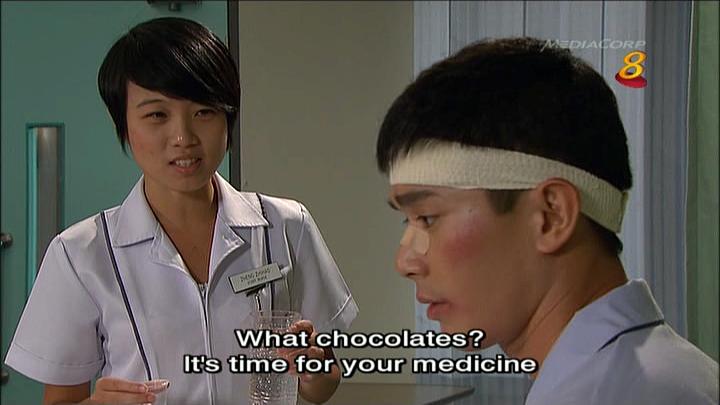A TWO-PARTY system may seem appealing to younger Singaporeans, but Prime Minister Lee Hsien Loong yesterday made a case to university students as to why it is not workable here.
Such a political arrangement, he argued, would result in a weaker system.
There is simply not enough talent in Singapore to form two 'A' teams to govern well, when a small country like Singapore has to have the strongest possible team to compete globally, he said.
In fact, the People's Action Party (PAP) once considered splitting itself into two, so that there could be a two-party system, but in the end did not do so.
There were simply not enough people of calibre to perform key roles like that of Finance or Defence Minister, he said.
His comments come as opposition parties have begun pitching themselves to voters as a fall-back option should the PAP fail.
Mr Lee, the PAP's secretary-general, said its candidates at the coming general election will be key members of an 'A' team and will need voters' full support to get elected and deliver results.
'This is the way to safeguard our common future - not to weaken the 'A' team in the hope of buying insurance, but to strengthen the 'A' team, to give it the best chance of succeeding,' he added, in an oblique reference to Workers' Party calls to vote for the opposition as insurance against the PAP faltering.
He was speaking to 1,200 students at the Kent Ridge Ministerial Forum organised by the National University of Singapore Students' Political Association, with the theme Leadership Renewal: The Fourth Generation And Beyond.
In a 45-minute speech, he noted that the PAP's overwhelming dominance was partly a result of events in the 1960s, but also due to its actions since then.
The party pursued policies which gave all citizens a stake in the country, sought to represent a broad range of citizens, and adapted the political system to avoid divisive politics while allowing for alternative views in Parliament.
And it must continue to do so, he said.
There is nothing, he noted, to stop the present three opposition MPs from holding the Government to account.
The PAP itself had only three opposition assemblymen in 1955, but established itself so effectively that within four years, it was able to win by a landslide and come into power, he said.
The party has since systematically renewed its ranks to stay vigorous and in touch with successive generations. A quarter to a third of its MPs make way for new blood at every general election.
This year is no different: The PAP will field over 20 new candidates, 15 of whom have been formally introduced.
Moving forward, Mr Lee said, the key issue is not about spotting the next Prime Minister, but how Singapore can maintain the virtuous circle of political stability, good government, and economic and social success.
Making a pitch to his audience to step forward and serve, he said: 'Don't wait for a tea party invitation. We are looking for people who will come forward who have ability and integrity regardless of family background. If you have ideas, if you have energy, if you care about it, come forward, serve, make a mark.'
Character and values are as important as intellect and ability, he added.
He observed that no system lasts forever, and warned against assuming that the PAP would always stay dominant.
He noted that Senior Minister Goh Chok Tong recently expressed a personal view that perhaps ministers should serve only two terms in future. But Mr Lee felt this would not be possible, as Singapore is unable to generate sufficient talent.
And if the PAP could not assemble a second team, he did not think the opposition would find it easier to do so.
For a capable person wanting to serve, he remarked that there are two choices - 'join the opposition, oversee the PAP, but really spend his life... waiting and watching, just in case the PAP screws up', or 'join the Government, help it make better decisions, implement good policies, and avoid making mistakes and screwing up'.
'Now, which makes more sense for him and for Singapore?' he asked.
Forum participants peppered Mr Lee with questions ranging from the fielding of new citizens as election candidates, to social mobility and the relevance of Group Representation Constituencies.
Some questions drew applause, others laughter. Throughout the 75-minute exchange, Mr Lee spoke candidly, switching between seriousness and humour.
For example, Nanyang Technological University student Tay Xiong Sheng, 25, wanted to know: Who would be the next PM if he, along with Minister Mentor Lee Kuan Yew, Senior Minister Goh Chok Tong, Deputy Prime Minister Teo Chee Hean, and Deputy Prime Minister Wong Kan Seng, did not survive a plane crash?
'Those who didn't get onto the aeroplane will have to have a meeting to decide,' said PM Lee.
Then, he added, drawing laughter from the audience: 'That is one of the reasons why we never ever all get on the same aeroplane together.'
[email protected]
[email protected]
TWO-TERM MINISTERS? NOT POSSIBLE
'Over the weekend, Senior Minister Goh Chok Tong expressed his personal view that perhaps in future, ministers should serve only two terms.
'But I think that's not possible, simply because of the numbers. We're not able to generate the talent in order to produce those numbers of people who are able to do the job competently to the satisfaction of Singaporeans at that rate.'
PM Lee, on SM Goh's view that a day may come when ministers serve only two terms
'There will not be another MM.'
GRC a good start for potential PM
Tin Pei Ling 'a good grassroots leader'




